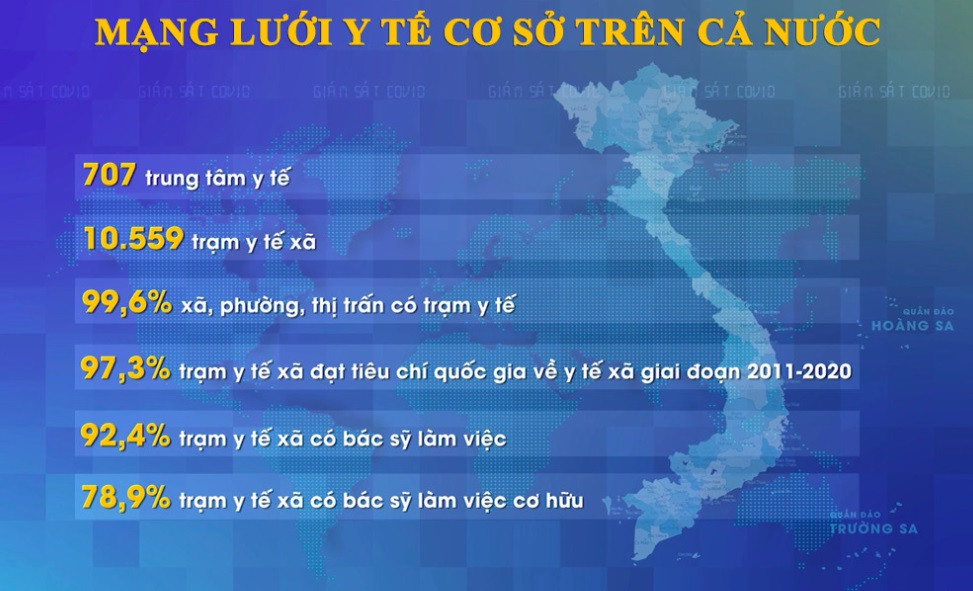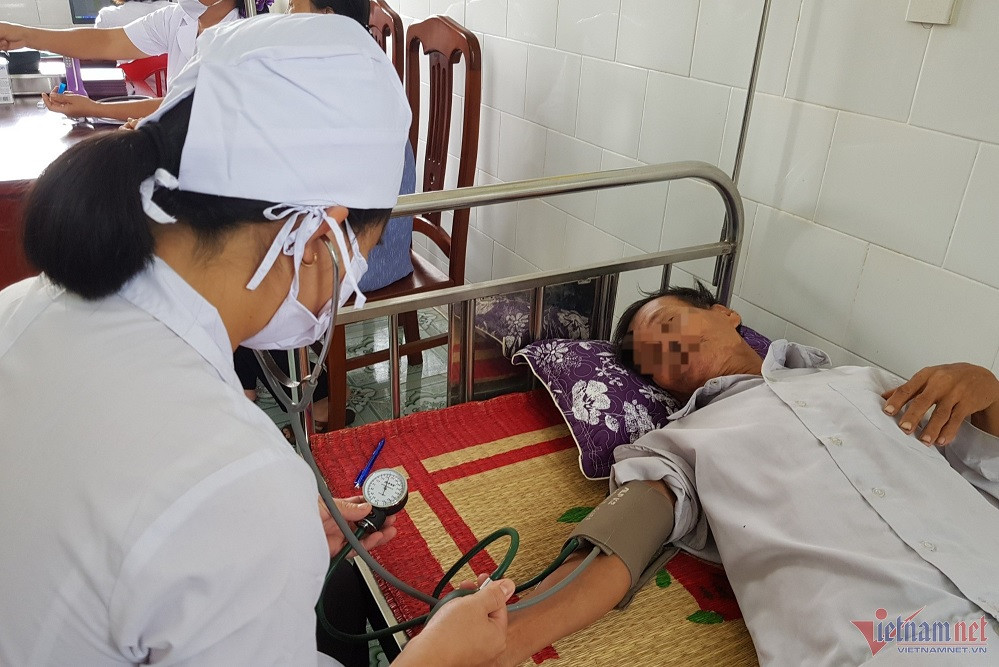
Therefore, investing in grassroots health human resources contributes to ensuring equal rights in medical examination and treatment.
Investing in grassroots healthcare, besides facilities and equipment, human resources and technical expertise is a key factor so that people can ensure fairness in medical examination and treatment.
During a conference of grassroots medical experts held in March 2023, Minister of Health Dao Hong Lan once again affirmed that grassroots healthcare plays an important role in the health system and it is the direct medical level, closest to the people.
"Grassroots health care is always considered the foundation and backbone of primary health care for the people," Minister Dao Hong Lan emphasized.
The Party, National Assembly, and Government of Vietnam have issued many decisions to continuously consolidate and improve the operational efficiency of the grassroots health system, such as Directive No. 06-CT/TW in 2002 on consolidating and completing the grassroots health network of the Secretariat of the 9th Party Central Committee, Resolution 20-NQ/TW in 2017 at the 6th Conference of the 12th Party Central Committee...
In recent years, the political system in general and the health sector in particular have made a lot of efforts to develop grassroots health care as truly a trustworthy "gatekeeper" of the people. The grassroots health network plays an important role in continuous, long-term health monitoring and care, contributing to reducing the burden of disease and death and improving people's quality of life.
Vietnam’s average life expectancy increased from 71.3 in 2002 to 73.6 in 2022, higher than the world average (73) and that of many countries having similar per capita income with Vietnam. Vietnam's essential health service coverage index in 2020 reached 70/100 points, higher than the average of Southeast Asia (61 points) and the global average (67 points).
According to the Ministry of Health, Vietnam is highly appreciated internationally in implementing the Millennium Development Goals. Such important results are achieved thanks to the great contribution of the grassroots medical network.
"Grassroots healthcare is important because it is an easy-to-access place with low costs, social justice, which helps reduce overload for higher-level hospitals," said Deputy Minister of Health Do Xuan Tuyen. In fact, grassroots healthcare facilitites currently ensures about 70% of the people's medical examination and treatment needs.
All people are equal in enjoying convenient, quality medical services

Investing in grassroots healthcare, in addition to infrastructure, equipment, human resource quality and technical expertise are "necessary and sufficient" factors for people to feel secure in trusting, choosing and sticking with it.
In order to stabilize human resources for the grassroot healthcare facilities, the health sector has taken many solutions to overcome the shortage of doctors at lower-level medical facilities such as combining military and civil medicine, launching Project 1816, satellite hospitals, Project 585...
Large hospitals such as Hanoi Medical University, Bach Mai Hospital have signed agreements to support hospitals in the provinces of Lao Cai, Yen Bai, Lai Chau, Nam Dinh... Thanks to the cooperation, many new techniques were transferred to staff of grassroot health facilities. Therefore, local hospitals can deal with many difficult cases, and people can have access to quality health care services right at the grassroots medical level.
In recent years, the application of scientific and technological advances in medical examination and treatment at the grassroots medical facilities has brought many benefits to people in remote and isolated areas.
Modern technology has also gradually erased geographical barriers, creating a medical network that is no longer limited between levels, providing professional support and marking an important step forward in improving the quality of health care for people in difficult areas.
At the grassroots medical levels, since implementing the remote medical examination and treatment program (telemedicine, telehealth), physicians and nurses have been able to attend daily professional meetings with provincial hospitals, and even receive timely professional support from doctors of central hospitals.
I addition to the results achieved, grassroots healthcare work has also revealed many inadequacies and limitations, especially in the 3 years of the Covid-19 pandemic. Although human resources for grassroots health care and preventive medicine have been strengthened, they are still lacking in quantity and limited in qualifications and professional capacity.
Investment in grassroot health care and preventive health care is actually not satisfactory and not commensurate with the viewpoint that "preventive health care is the key, grassroot health care is the foundation". Therefore, to maximize the task of taking care of the health of the entire population in the new situation in the spirit of protecting the health and lives of the people first and foremost, it is necessary to invest in human, material and financial resources to develop the grassroots healthcare system, moving towards a fair and effective Vietnamese healthcare system.
Minh An